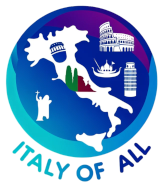The province of Parma, located in the Emilia-Romagna region of northern Italy, is famed for its culinary heritage, cultural richness, and lush landscapes that include both the Po Valley and segments of the Apennine mountains. This area combines a deeply rooted historical identity with thriving agricultural and industrial sectors, making it a significant and vibrant part of Italy.
Geographically, Parma is characterized by its fertile plains, which are ideal for agriculture, and the rugged hills that rise to the south towards the Tuscan-Emilian Apennines. This varied terrain supports diverse farming activities and offers scenic beauty and ample recreational opportunities, such as hiking and skiing in the higher elevations.
Historically, Parma has a rich legacy that includes being a former ducal seat under the Farnese and later the Bourbon families, which endowed the city with a wealth of artistic and architectural treasures. Notable sites include the Palazzo della Pilotta, the Teatro Farnese, and the Parma Cathedral with its stunning frescoes by Correggio. The University of Parma, one of the oldest universities in the world, adds to the city’s historical and cultural prominence.
Culturally, Parma is renowned for its significant contributions to Italian opera and theater, with figures such as the composer Giuseppe Verdi and conductor Arturo Toscanini associated with the city. The area celebrates its musical heritage through various festivals and performances, particularly at the Teatro Regio, which is a key venue for opera. Parma is also celebrated for its vibrant food culture and is recognized as a UNESCO Creative City for Gastronomy.
Cuisine in Parma is arguably one of its most globally recognized attributes, particularly known for Parmigiano Reggiano cheese and Prosciutto di Parma. These products, along with others like culatello and salame, showcase the region’s long-standing tradition of cured meats and cheese-making, which are integral to the local economy and gastronomy.
Economically, Parma’s economy is driven by its agricultural products, which are esteemed both domestically and internationally. Additionally, the food processing industry is highly developed, supported by research and development in food technology, particularly at the Parma-based European Food Safety Authority. The machinery and automotive sectors also contribute to the economic landscape, making the province an industrial as well as an agricultural hub.
Despite challenges such as maintaining sustainable agricultural practices and adapting to economic changes, Parma continues to evolve, with a strong focus on promoting its gastronomic heritage and expanding its tourism sector. Efforts to balance economic growth with environmental sustainability are pivotal to the province’s strategy for future development.
Overall, the province of Parma offers a rich blend of cultural heritage, culinary excellence, and economic vitality. Its ongoing efforts to foster sustainable development while preserving its unique traditions ensure its continued significance in Italy’s cultural and economic landscape.
Comuni in Parma Province:
- Bore
- Berceto
- Borgo Val di Taro
- Albareto
- Bardi
- Bedonia
- Calestano
- Busseto
- Fidenza
- Collecchio
- Compiano
- Corniglio
- Fornovo di Taro
- Colorno
- Collagna
- Felino
- Fontanellato
- Fontevivo
- Langhirano
- Lesignano de’ Bagni
- Palanzano
- Parma
- Neviano degli Arduini
- Montechiarugolo
- Noceto
- Monchio delle Corti
- Roccabianca
- Salsomaggiore Terme
- Polesine Zibello
- Soragna
- San Secondo Parmense
- ** Solignano
- Sorbolo Mezzani
- Sissa Trecasali
- Varano de’ Melegari
- Valmozzola
- TornoTornolo
- Torrile
- Traversetolo
- Varsi
